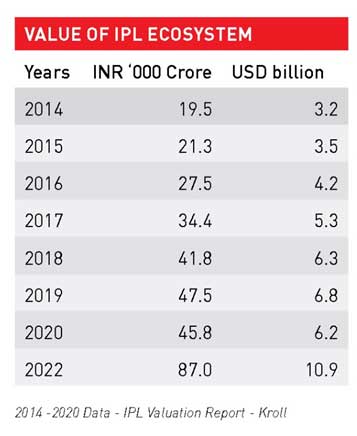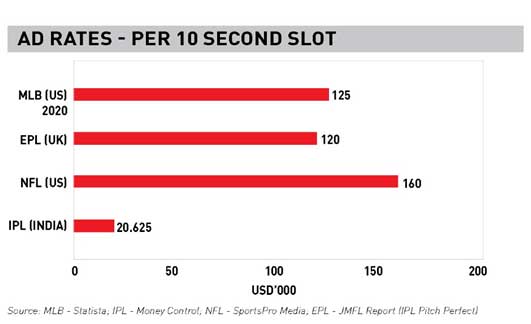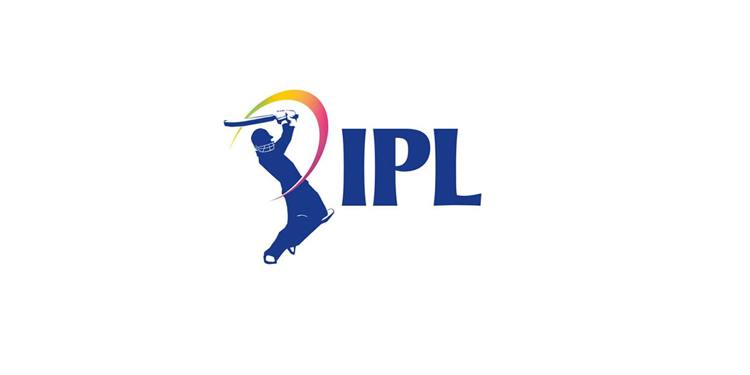D and P Advisory has released a valuation report on the Indian Premier League (IPL) for 2022, one of the largest sporting events in the world. The report titled “Beyond 22 Yard,” shows that the value of the IPL ecosystem has grown by 75% since 2020, reaching a value of $10.9 billion. In 2020, the IPL was valued at $6.2 billion. This means that within 15 years of its creation, the IPL has become a “decacorn,” a term used to describe a business with a value of more than $10 billion. The IPL ecosystem represents the value generated by the IPL as a business.
A landmark event this time was the auction of the IPL media rights for 2023 to 2027. For the first time, media rights were spread among different broadcasters, breaking the monopoly of one company. The league has sold media rights at USD 6.2 billion, registering a three-fold jump compared to the previous 5-year cycle in 2017. Additionally, the tournament in 2022 also registered a record breaking combined viewership of 426 million on television and OTT platforms.
With two new teams (Gujarat Titans and Lucknow SuperGiants) getting bought last year at a combined staggering value of USD 1.6 billion, the average price tag of a team has seen a whopping 16-fold jump from its inception. These two factors were instrumental in boosting the valuation of IPL to become a Decacorn and the second largest sporting league (on a per match basis from broadcasting fees) globally.

To add to the momentum, the Board of Control for Cricket in India (BCCI) has announced the launch of Women’s Indian Premier League with a base price for a franchise at INR 400 crores (USD 50 million). This price is higher than most other cricket leagues globally, and will add immense value to the overall IPL Ecosystem.
However, on a broader scale, IPL is significantly behind in terms of ad rates, when compared with some of the other global sporting leagues. For example, a 10-second slot for an ad during IPL 2022 costed nearly USD 20,000; whereas, the ad rates for the same time slots at National Football League, English Premier League and Major League Baseball were over USD 1,00,000. Drawing this comparison, the report mentions how IPL has a lot more space to grow in future provided broadcasters are able to monetise the content well.


On the launch, Santosh N, Managing Partner, D and P Advisory says, “Since its launch in 2008, IPL has reimagined the nation’s cricket competition. IPL 2022 witnessed some major milestones and captivating games throughout the season. The renewed media rights deal was a major contributor towards a substantial jump in value for a relatively young league like IPL. These observations are an assurance of the fact that the IPL will continue to revolutionise the game of cricket and will be etched in the hearts of millions of fans for years to come.”
The report goes on to say that the IPL team owners are looking to replicate the multi-club ownership model as part of their long term strategy. For example- The Knight Riders Group owning the right to Trinbago Knight Riders in the Caribbean Premier League, and a franchise of the UAE T20. It also has plans to build cricket stadiums in Los Angeles, USA, in partnership with the Major League cricket. Reliance Industries, the owners of Mumbai Indians, recently unveiled two new franchises in UAE’s International League T20 and Cricket South Africa T20 League.
Furthermore, with BCCI having forged and locked in new broadcasting deals for the next five years, the report foresees a more stable phase in terms of the value of the IPL Ecosystem. “The value appreciation may not be as fast as seen in the earlier years”, it states.
The report also states that the digital rights being sold separately from TV rights would result in greater engagement on the digital platforms. Further, the impending introduction of 5G services, greater penetration of the internet and increased smartphone usage will add to the rise in viewership.
The report concluded stating that for these growth trajectories to maintain their momentum, all teams need to continue broadening their footprint, forming relationships, and generating revenue opportunities in different markets. Ultimately, apart from the love for cricket that viewers have, much of cricket’s future depends on ensuring quality; not just for the fans, but also to attract sponsors and broadcasters, the latter of which have become vital for the game’s financial health.

















